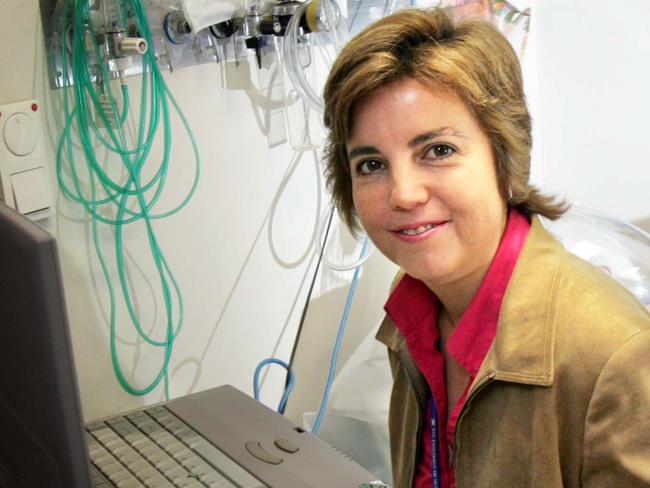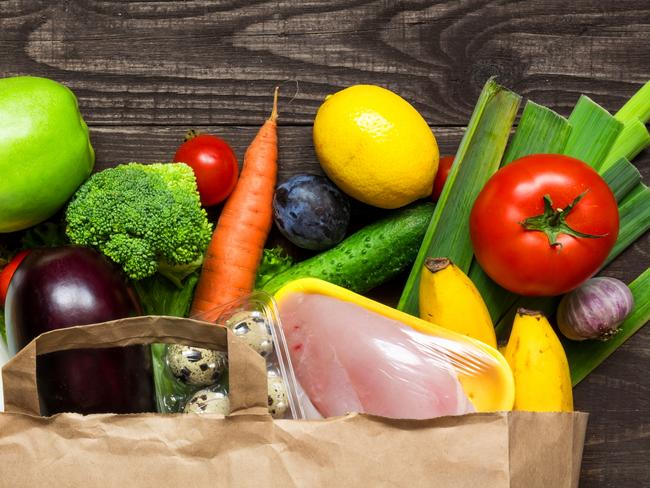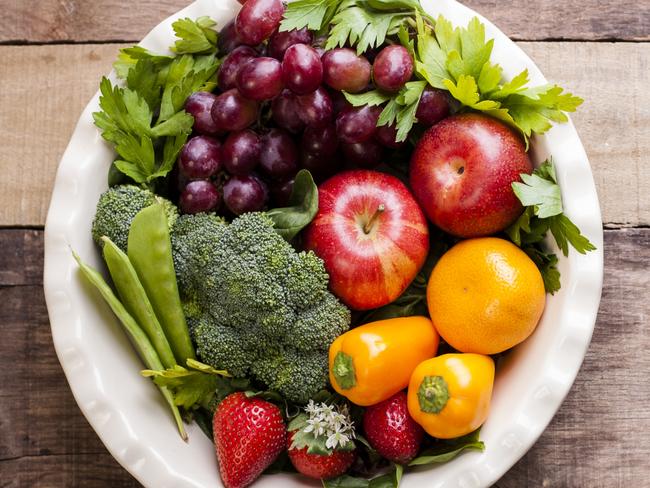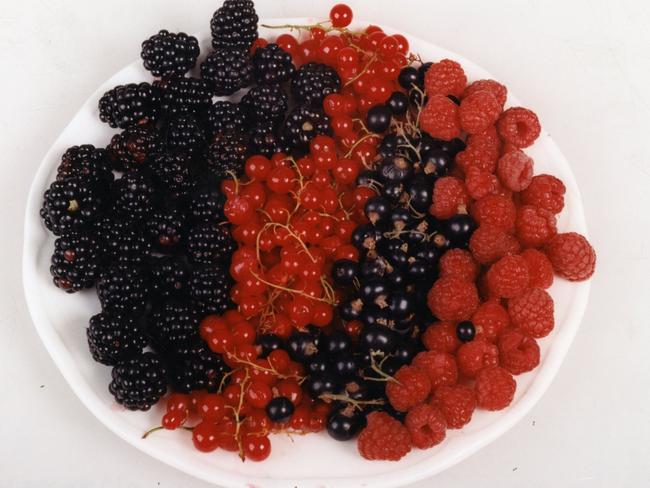Researchers believe anti-inflammatory diet key to health
MOVE over, “super foods” Nutrition researchers now believe a “super diet” may just hold the key to warding off chronic disease.
VIC News
Don't miss out on the headlines from VIC News. Followed categories will be added to My News.
MOVE over, “super foods”. A “super diet” may hold the key to warding off chronic disease, nutrition researchers believe.
EATING RIGHT COULD BE BEST MEDICINE FOR MOOD
EATING HEALTHY DOESN’T HAVE TO BREAK THE BANK
MOTHER’S GUT BACTERIA COULD IMPACT FUTURE HEALTH OF CHILDREN
Though short-term inflammation can promote healing of injuries, evidence is growing that chronic low-grade inflammation drives many common illnesses, such as type 2 diabetes, heart disease, dementia and some cancers.
Monash University’s Department of Nutrition, Dietetics and Food has developed its own anti-inflammatory diet and an online course.
More than 120,000 people from around the world have enrolled for their latest “Food as Medicine” free online course. In its second year, it has become one of the top five Massive Open Online Courses internationally.
Department head Professor Helen Truby said the Western diet appeared to be pro-inflammatory, driving low-level and constant inflammation in the gut, liver and fat throughout the body and contributing to chronic disease.

She said anti-inflammatory diets combine foods that work together to help suppress the main pathways of inflammation.
“The good news is we’re understanding that inflammatory responses may be more amenable to smaller changes in our diet and lifestyle.
“It’s potentially a way to reduce our risk without too much effort,” Prof Truby said.
“One of the most critical things is having a larger proportion of your diet as vegetables, whole grains and legumes.
“It’s shifting from having meat and two veg, to a small amount of meat and three or four veg,” Prof Truby said.
Anti-inflammatory molecules in food interact to suppress the main pathways involved in complex body responses to inflammation.

Examples of anti-inflammatory diets include the Mediterranean, Nordic and Okinawan diets and the blood-pressure-lowering DASH diet in the United States.
The diets include a wide range of foods and rely heavily on unprocessed fruit and vegetables and whole grains.
Fats are obtained from olive oil, fish and nuts.
Prof Truby said weight gain and inflammation were closely linked. The normal function of fat cells become overwhelmed as their storage capacity is stretched, leading to inflammatory effects across the body.
“Losing just 5-10 per cent of your body weight can see many inflammatory markers reduce,” she said.
“People need to monitor their waist circumference,” Prof Truby said.
“The type of fat that gets laid down around people’s tummies gets laid around internal organs, and is the one that drives inflammation.”

PLANTS CAN AID THE BRAIN
MOLECULES in edible plants that allow cells to live and grow may be neuroprotective.
Researchers in Melbourne and elsewhere are finding that a range of compounds in plants that contribute to their colour and taste can affect several cell functions, in addition to acting as antioxidants.
Professor Philip Beart, of the Florey Institute of Neuroscience and Mental Health, coined the term “neuro-nutraceutical” in 2015 to characterise the molecules in foods that may help prevent or reverse brain diseases such as Alzheimer’s, Parkinson’s and stroke, and psychiatric conditions.
The hope is that the regular consumption of certain foods can increase the brain’s natural defences to avoid, or at least minimise, damage that leads to degenerative brain disease.
“The biochemistry of the brain is complicated, so it’s not just the Mediterranean diet,” Prof Beart said.
“If you injure a nerve cell in the brain … inflammation occurs. There is growing evidence some natural products will block that … Sure, you have to have a good diet and eat lots of berries.
“But the evidence … is that physical activity is a bonus, as it gives you new neurons. You can get new brain cells all your life if you exercise.”

ANTI-INFLAMMATORY FOODS
Berries: Blueberries, blackberries and raspberries help to switch off the ability of pro-inflammatory genes. High in antioxidants, they may also help prevent inflammatory changes that lead to memory impairment.
Garlic: Regular consumption may help lower levels of C-reactive protein in our blood. This biomarker signals that inflammation is developing and is used to predict risk of stroke and heart attack.
Turmeric: Curcumin, the major component of the yellow spice, can help prevent inflammation in a number of ways, including stopping it developing in blood vessel walls, which makes them less able to dilate.
Raw vegetables: Eating a mix of raw and cooked vegetables is important, as heat can degrade the anti-inflammatory vitamin C components of beetroots, carrots and swedes.
Ginger: New research shows it may help reduce inflammation markers in people with diabetes.
Kidney beans: The resistant starch they contain makes them a “prebiotic” — a type of fibre readily digested by healthy bacteria in the gut. This fermentation process can help reduce inflammation in the gut and throughout the body.
Citrus: Animal studies are showing that the vitamin P pigments that give oranges, lemons and grapefruit their vivid colour can dampen overactive immune cells involved in chronic inflammation.
Source: Using Food as Medicine: Fighting Inflammation. Monash University Department of Nutrition, Dietetics and Food


